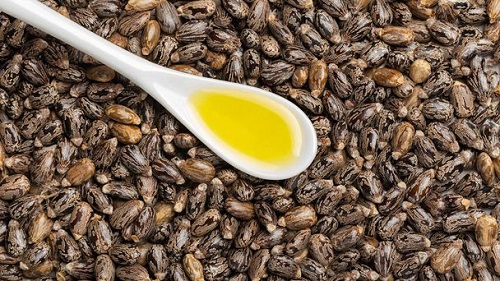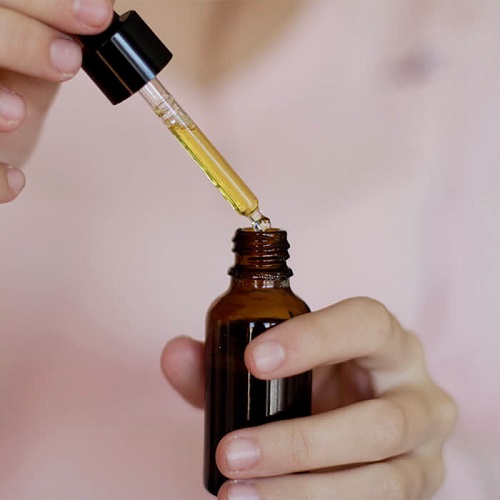Uncover the facts surrounding—’Does Castor Oil Get Rid Of Mucus?‘ and discover its potential benefits for respiratory health!

Castor oil, derived from the seeds of the Ricinus communis plant, is known for its diverse therapeutic applications. While it’s not a miracle cure, it might hold promise for those dealing with mucus issues. So, if you’re wondering—Does Castor Oil Get Rid of Mucus, here’s everything you must know!
Learn if Castor Oil is Better in a Glass Bottle or Plastic Bottle here
What is Mucus?
Mucus, also known as phlegm, is a slippery fluid produced by our bodies, essential for our health. It’s found in the respiratory and digestive systems, playing a vital role in our well-being.
Our body creates mucus as a form of protection. In the respiratory system, it’s like a security guard, trapping dust, allergens, and harmful microorganisms to keep our lungs safe. In the digestive system, it’s the smooth operator, ensuring food passes easily and shielding our stomach lining from harsh digestive acids.
Sometimes, our body’s mucus production hits overdrive, triggered by respiratory infections, allergies, environmental factors, or certain health conditions. This excess can lead to familiar woes – a runny or blocked nose, coughing, chest congestion, and a scratchy throat.
Excessive mucus isn’t just a nuisance; it can genuinely disrupt our day-to-day life. It can make breathing and swallowing a chore, leading to constant coughing and throat clearing, especially during cold, allergy seasons, or when dealing with conditions like bronchitis or sinusitis.
Does Castor Oil Get Rid Of Mucus?
While Castor oil may not technically ‘get rid’ of mucus, but it does provide relief to some extent.
The idea is that the anti-inflammatory stuff in castor oil might help soothe your airways, making it easier to get rid of that pesky mucus. Some people even make their own castor oil packs and lay them on their chest to try to kickstart the mucus-clearing process. Now, it’s crucial to remember that this isn’t a surefire, doctor-approved method, so if you’re dealing with ongoing issues, you should definitely seek professional advice. However, if you’re into natural remedies, it might be worth a shot to see if it works for you.
Discover the Effectiveness of Castor Oil for Thyroid here
How Does Castor Oil Help With Mucus?
Now, let’s explore how castor oil, with its unique properties, can assist in relieving mucus-related discomfort:
1. Anti-Inflammatory Properties
Castor oil contains an active ingredient called ricinoleic acid, which is known for its potent anti-inflammatory properties. When applied topically to the chest or throat, castor oil can help reduce inflammation in the respiratory tract. This, in turn, can ease discomfort associated with mucus buildup and congestion.
2. Decongestant Effects
Castor oil’s natural warming properties can have a soothing effect on the airways. When massaged into the skin, it can help relax the respiratory muscles, making it easier to expel mucus through coughing or sneezing. This decongestant action can provide relief from that heavy, congested feeling.
3. Moisturizing Action
Dry air, especially in heated indoor spaces, can exacerbate mucus-related issues, leading to further irritation. Castor oil’s natural moisturizing qualities can help maintain the right moisture levels in the airways. This can reduce irritation and make it more comfortable to breathe.
Learn about Oil Pulling with Castor Oil here
How to Use Castor Oil for Mucus Relief?
Here’s a step-by-step guide on how to effectively use castor oil for mucus relief:
1. Ingredients
To get started, you’ll need high-quality, cold-pressed castor oil, which is readily available at most health stores. Ensure you choose a pure and unadulterated product for the best results.
2. Warm it
Begin by gently warming the castor oil. You can do this by placing the bottle in warm water or using a gentle heat source. Note that you don’t want the oil to be hot; it should be comfortably warm to the touch.
3. Massage
Apply the warmed castor oil to the chest, back, or throat area. Using gentle, circular motions, massage the oil into the skin. This not only helps with oil absorption but also provides a soothing, comforting touch.
4. Cover and Rest
After applying the oil, cover the treated area with a warm towel or cloth. This serves a dual purpose: it keeps the area warm and helps the oil penetrate the skin. Now, it’s time to rest and let the oil work its magic. This rest period can be anywhere from 30 minutes to an hour, depending on your comfort level.
5. Repeat as Needed
Depending on your level of discomfort and mucus buildup, you can repeat the application up to three times a day. It’s essential to listen to your body and adjust the frequency to what provides you with the most relief.
Discover the Castor Oil Side Effects here
Safety Precautions
- Always conduct a patch test to ensure you don’t have an adverse reaction to the oil.
- Consult with a healthcare professional, especially if you have respiratory conditions or are on medication.
- Do not ingest castor oil, as it can lead to severe side effects.
- Use castor oil with caution if you are pregnant or nursing.
Conclusion
Castor oil, with its anti-inflammatory and moisturizing properties, may offer relief from mucus-related discomfort. While it’s a natural and potentially helpful remedy, remember that it does not get rid of mucus completely. Always approach with caution and consult a healthcare professional for personalized guidance.
Get the Best Castor Oil Buyer’s Guide here
FAQs
1. How Long Does It Take For Castor Oil To Provide Relief From Mucus-Related Discomfort?
The time it takes for castor oil to provide relief can vary from person to person. Some individuals may experience relief within a short time, while others may require longer periods of application. Consistency is key, and you can use it up to three times a day as needed.
2. Can I Use Castor Oil On Children Or Infants For Mucus Relief?
It’s generally best to consult with a pediatrician before using castor oil on children or infants. Children have more sensitive skin, and their airways are narrower, making any form of mucus relief a potential concern. Always prioritize safety and consult with a healthcare professional for guidance.




